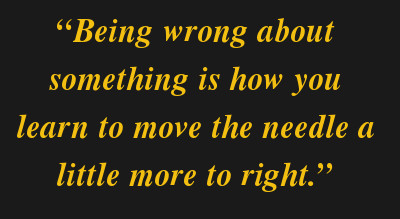A while back I wrote a piece titled, “It’s Time the Software People and Mechanical People Sat Down and Had a Talk“. It was mostly a reaction to what I believe to be a growing problem in the hacker community. Bad mechanical designs get passed on by what is essentially digital word of mouth. A sort of mythology grows around these bad designs, and they start to separate from science. Rather than combat this, people tend to defend them much like one would defend a favorite band or a painting. This comes out of various ignorance, which were covered in more detail in the original article.
There was an excellent discussion in the comments, which reaffirmed why I like writing for Hackaday so much. You guys seriously rock. After reading through the comments and thinking about it, some of my views have changed. Some have stayed the same.
It has nothing to do with software guys.
 I definitely made a cognitive error. I think a lot of people who get into hardware hacking from the hobby world have a beginning in software. It makes sense, they’re already reading blogs like this one. Maybe they buy an Arduino and start messing around. It’s not long before they buy a 3D printer, and then naturally want to contribute back.
I definitely made a cognitive error. I think a lot of people who get into hardware hacking from the hobby world have a beginning in software. It makes sense, they’re already reading blogs like this one. Maybe they buy an Arduino and start messing around. It’s not long before they buy a 3D printer, and then naturally want to contribute back.
Since a larger portion of amateur mechanical designers come from software, it would make sense that when I had a bad interaction with someone over a design critique, they would be end up coming at it from a software perspective. So with a sample size too small, that didn’t fully take into account my positive interactions along with the negative ones, I made a false generalization. Sorry. When I sat down to think about it, I could easily have written an article titled, “It’s time the amateur mechanical designers and the professionals had a talk.” with the same point at the end.
Though, the part about hardware costs still applies.
I started out rather aggressively by stating that software people don’t understand the cost of physical things. I would, change that to: “anyone who hasn’t designed a physical product from napkin to market doesn’t understand the cost of things.”





 As always, everyone is welcome in our weekly discussion, even if you haven’t been keeping up with our progress through
As always, everyone is welcome in our weekly discussion, even if you haven’t been keeping up with our progress through 










